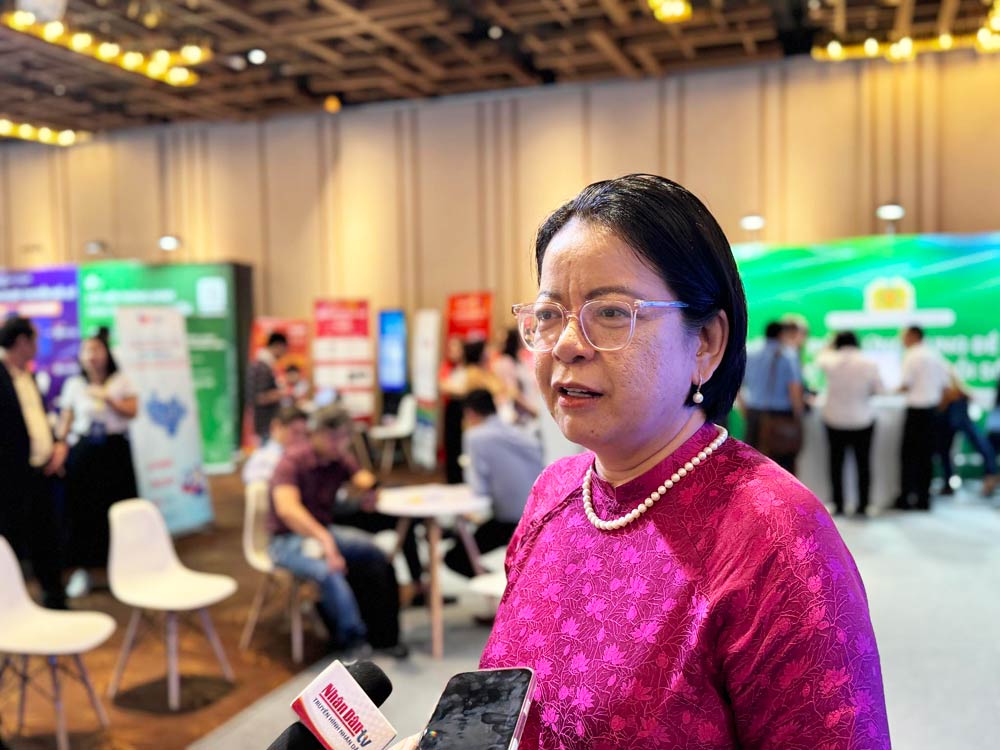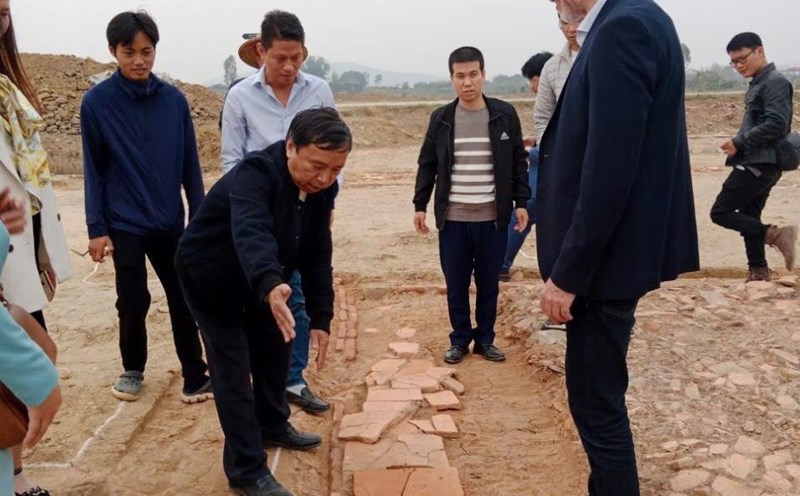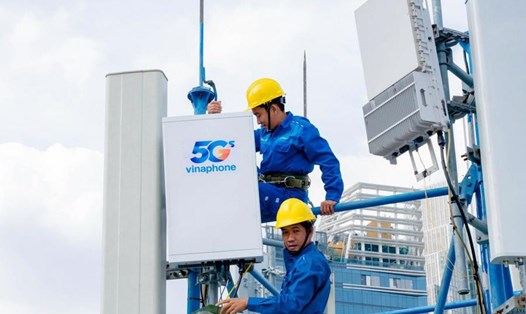Sir, since 2017, Ho Chi Minh City has had a project "Building Ho Chi Minh City into a smart city". Nearly 8 years have passed, what impressions has the journey to build a smart city in the city achieved?
- Over the past 8 years, the digital transformation in Ho Chi Minh City has always received deep attention from the leaders of the City Party Committee and the People's Committee of Ho Chi Minh City, and at the same time actively participated from agencies and units in the area. One of the prominent imprints is that Ho Chi Minh City has risen to the second country in the country in terms of digital conversion index (DTI), only after Da Nang.
Meanwhile, according to the United Nations E-Government Survey Report, Ho Chi Minh City has made great strides in developing e-government, with the Local Online Services Index (LOSI) improving significantly, from 54/146 to 53/152 among typical cities surveyed globally in 2023.
The system of reporting recommendations via Call Center 1022 helps enhance interaction between authorities. In particular, since the end of 2024, Ho Chi Minh City has deployed the Digital Citizen application, helping to quickly connect the government and people, while bringing many practical utilities such as receiving information, reflecting recommendations, looking up administrative procedures... with just a few simple steps on a smartphone.
We believe that, to successfully transform digitally, to build a smart city, there must be a connected environment, in which every voice of the people is respected and resolved promptly.
Ho Chi Minh City not only "digitizes" information, but also creates a smart data structure, supporting quick and accurate policy decisions. In Ho Chi Minh City, there are 1,891 publicly listed administrative procedures, connected to many systems of ministries and branches.
One of the four pillars of the smart urban project in Ho Chi Minh City is a shared data warehouse. Ho Chi Minh City has a very "huge" data warehouse, but in your opinion, is the data connection really effective, to create unity, as a foundation for digital transformation?
- Regarding the pillar of shared data warehouse and open data ecosystem, since 2018, when issuing the E-Government Architecture, Ho Chi Minh City has been a pioneer in building shared data warehouses. Currently, the city focuses on 3 main groups of data: Population data (administration, healthcare, education), finance - enterprises (budget revenue and expenditure, public investment), and land - urban (geographical maps, transportation, planning).
Although Ho Chi Minh City has been a pioneer in building a shared data warehouse since 2018, with 45 databases, of which 25 databases have been officially operated, the work of connecting and sharing data between systems has not been effectively implemented. Data between ministries, branches and agencies has not been shared properly, which causes difficulties in management and decision-making.
People still have difficulty interacting with many different systems, each system requires different procedures. Moreover, the work of reforming administrative procedures has not been implemented synchronously, causing the process of converting these procedures to the digital environment to not be really effective. In particular, spatial data for urban management has not been created synchronously, seamlessly and fully, affecting the decision-making related to urban planning and development.
Currently, data management and sharing strategies continue to be promoted. Ho Chi Minh City coordinates with the National Data Center to build a data structure connecting from the central to local levels, serving the management and development of public services more effectively. The city is also making efforts to develop digital infrastructure, especially 5G infrastructure, Internet of Things (IoT), and information network connections, to create a shared digital platform, helping to enhance connectivity between ministries, branches and better serve the needs of the people.

Regarding the shared application connecting the government with the people - Ho Chi Minh City Digital Citizen App, can you tell us how the application has brought initial results and development directions in the coming time after half a year of operation?
- Application of Ho Chi Minh City Citizens launched in November 2024, until now, 6 months of operation. This is a smart mobile application, a two -way communication channel between the city government and the people with an easy and convenient "one -touch" interaction. Up to now, the application has had 332,290 downloads; 839.191 Application visits; 1,315,216 interactive turns, use services ... Many information that people reflected and proposed that were transferred to the authorities to handle ultimately and effectively. Those are the initial results and have not stopped there, because the Ho Chi Minh City Citizens App continues to be upgraded, completed, and continues to grow up to serve the people better and better.
People can now use the Ho Chi Minh City Digital Citizen App to take the metro. In the near future, people will be able to pay for electricity, water, taxes, and fees through this App. The feature of looking up administrative procedures continues to be upgraded to help people submit documents online via the Digital Citizen App.
The Ho Chi Minh City Digital Transformation Center continues to listen to, record feedback and suggestions from departments, branches and people to supplement and perfect the services, features and utilities of the App.
downloading and using the Digital Citizen App is also an act of contributing to the formation of a true "digital citizen" in Ho Chi Minh City - every citizen aged 14 and over uses the application to connect with the government, use public services (public communication, healthcare, education, social protection...) and speak their voice.
Through people's interaction with the Digital Citizen App, it will create data reflecting people's activities - forming big data to serve digital government, thereby contributing to adjusting and improving policies. This is the way data truly becomes "production documents" as clearly stated in Resolution 57, contributing to building a smart city and sustainable development.
Toi cho rang, trien khai Nghi quyet so 57-NQ/TW nam 2024 cua Bo Chinh tri ve dot pha phat trien khoa hoc, cong nghe, doi moi sang tao va chuyen doi so quoc gia tren dia ban TPHCM da, dang va se tao su chuyen bien nhan thuc mot cach manh me cua cac co quan don vi, dac biet la nguoi dung dau cap uy, trong viec dot pha phat trien khoa hoc, cong nghe, doi moi sang tao va chuyen doi so, nhat la co nhan thuc thoa dang ve vai tro, gia tri cua du lieu - la tai Nguyen, is the production material.
With its responsibility, the Ho Chi Minh City Digital Transformation Center is ready to coordinate and support businesses, especially small and medium enterprises, to carry out digital transformation. Ho Chi Minh City continues to promote the sharing of data from the public sector - Open Data Portal; data exchange so that businesses can exploit data as raw materials for business models and innovation.
Resolution 57 also clearly states the completion of smart urban construction for centrally-run cities. Ho Chi Minh City continues to push forward to complete the construction of smart cities in the city by 2030.
Thank you for the interview!










